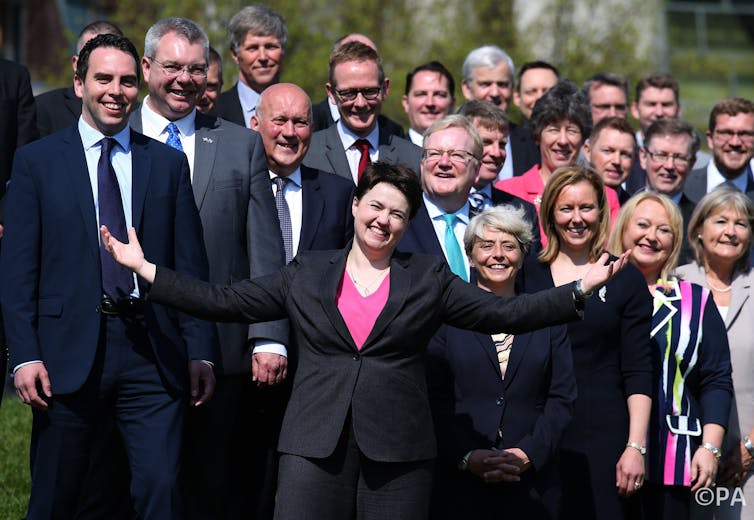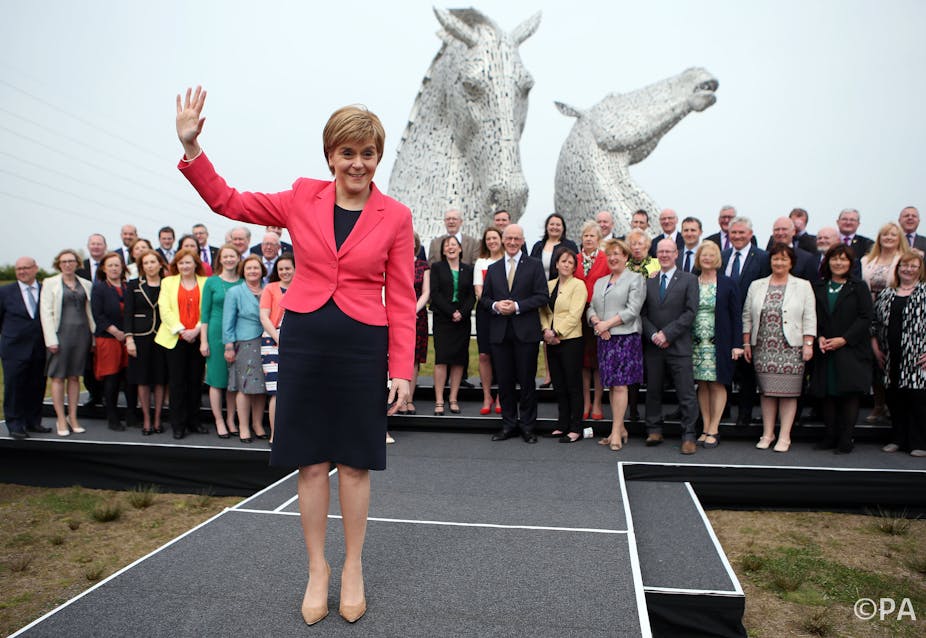It did not take long for political parties and commentators to start making confident pronouncements about what the Scottish election result means for the future of the union. Equal first prize must go to the Scottish Conservatives and the Scottish National Party. Ruth Davidson and her fellow Conservatives are arguing that commanding 24% of Holyrood seats gives them a mandate as the protector of the union, while Nicola Sturgeon insists the SNP has sufficient backing to relaunch its independence campaign in the summer – there is always the danger that the leopard man of Skye hasn’t heard about the issue, I suppose.
In truth, the result did not really tell us anything more about the two things we already know. The first is that in the short term, the only event that matters is the EU referendum vote on June 23. If most UK voters choose to leave the EU and most in Scotland vote to remain, there will be a constitutional crisis. The ruling SNP will push for a second referendum on Scottish independence; and along with the six Green MSPs, it will have the votes to pass a bill to that effect in the Scottish parliament. The only obstacle would be a UK government led by the party that just used a referendum to justify major constitutional change.
Second, in the absence of such an event we are just killing a horrible amount of time until the next meaningful opportunity to vote on Scottish independence. Assuming the SNP continues to win elections in Scotland, or at least pro-independence parties maintain a majority in Holyrood, I’ve always thought the gap would be about ten years. That would be enough time since the 2014 vote for the Yes side to see if it can produce a generational change in attitudes.
Instead of admitting this state of affairs, we have the usual posturing from the main parties. Both the Tories and the SNP know that the only other triggers of an early referendum are weak – the SNP’s mooted shift in independence support from the current high forties to around 60%; and the Scottish Greens’ mention of a petition with maybe 100,000 votes. Yet they feel they have to keep up the longest game of chicken in Scottish political history.

The only party that really needs the further debate is Scottish Labour. The party’s attempts to appear flexible about the constitution and reinstate some distance with the more staunchly unionist Conservatives often make it look confusingly ambivalent. Witness the furore during the campaign when Labour leader Kezia Dugdale initially refused to rule out backing a second independence referendum in the event of a Scottish Remain/UK Brexit vote. Nearer election day the party ruled out another referendum for the duration of the current parliament. Now the deputy leader Alex Rowley and other senior voices are calling for full home rule, and one backer, former Labour first minister Henry McLeish, wants this put to the public along with independence in a second referendum.
The heart of the matter
Another misleading trope is for commentators to argue that this election marks the complete “Ulsterisation” of Scottish politics, where people vote SNP for independence or Conservative for the union and only identity-politics matters.
It must be a tempting argument, but detailed analysis dating back to the SNP victory in the 2007 election strongly suggests that voters’ biggest reason for backing the party has been the belief it would do the best job in office – “valence politics”, as academics sometimes describe it. This is usually key to getting elected anywhere, along with having a leader and a vision for the future that voters respect. The SNP has benefited from being a party that looks highly professional, even if one’s belief in the party’s competence may admittedly be linked strongly to one’s belief in independence.
The same electoral reality explains why the Conservatives went big on Ruth Davidson during the campaign – many of their promotional materials did not even mention the party. It is also why they used a proxy for governing competence – “strong opposition” – in the absence of the likelihood of them being in government. Meanwhile, Labour may have suffered because compared to the SNP and Conservatives, its seems shambolic. Identity politics surely matters as the factor which underpins core attitudes, but these perceptions around competence and leadership probably better explain the trends in support for each party.

Still, perhaps the biggest lesson from this election is that if you are determined to make and act on this argument about identity politics you should do it well. The SNP and Conservatives did it well. In contrast, too many senior people in Scottish Labour – including the leader, Kezia Dugdale, and former deputy Anas Sarwar – expressed disappointment that the electorate did not think like them. As has been pointed out elsewhere, this is hardly likely to endear voters. Put together, constitutional ambivalence and strategic incompetence can be off-putting. So the two biggest parties in the Scottish parliament might be annoyingly narrow-minded, but at least they look like they know what they are doing.

